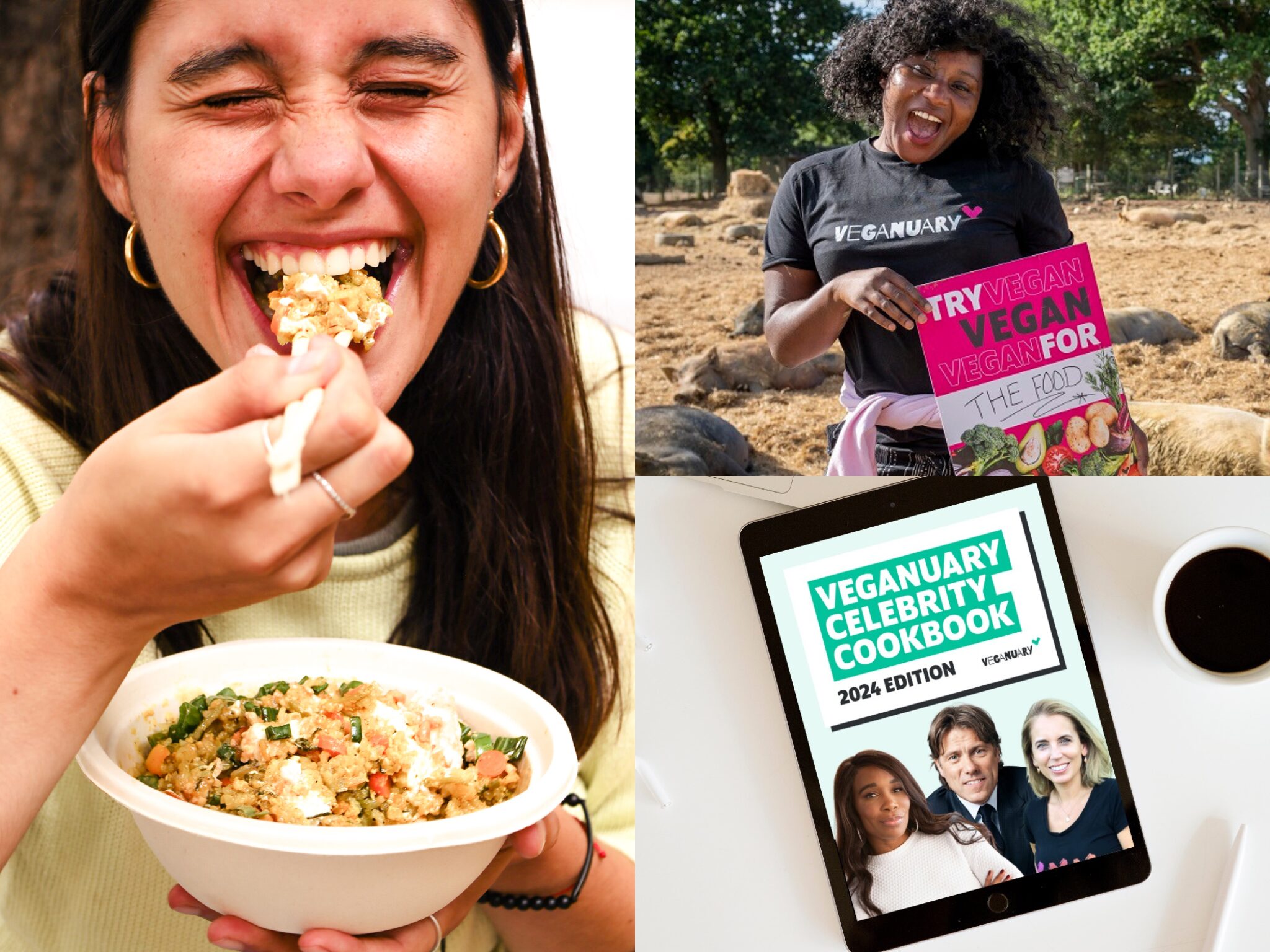7 Mins Read
Ahead of its 11th year, the annual Veganuary campaign is expected to once again reach record participation – here are a few resources to help you go vegan in January 2024, and stick to the diet afterwards as well.
It is almost four years since I’ve been vegan – and it’s all thanks to Veganuary.
I took up the challenge in 2020, following my already-vegan best friend. I had no intention of continuing past January, and midway through, my nightly dreams as well as daytime wondering comprised visceral visuals of cheese and milk chocolate, and a determination to buy a ton of both come February 1.
But another week in, those cravings subsided, and I began to see what makes Veganuary tick: what started out as forcing a habit became a force of habit itself. Giving up dairy cold-turkey was hard at first, but it took three weeks for that to phase out.
And I’m just one of many, many people who have used Veganuary since its inception in 2014 to kickstart their transition to a plant-based diet. Granted, it was easier considering I was vegetarian and not a meat-eater, and the fact that I was in London, one of the vegan capitals of the world.
But that was 2020, and there is a higher number of plant-based products on supermarket shelves, dishes on restaurant menus, and resources to help you out than ever before. And whether you’re more attracted to the health aspect, the animal welfare bit, or climate credentials, it’s genuinely never been easier to go vegan. Here are our top resources to help you through Veganuary 2024.
VeGuide app
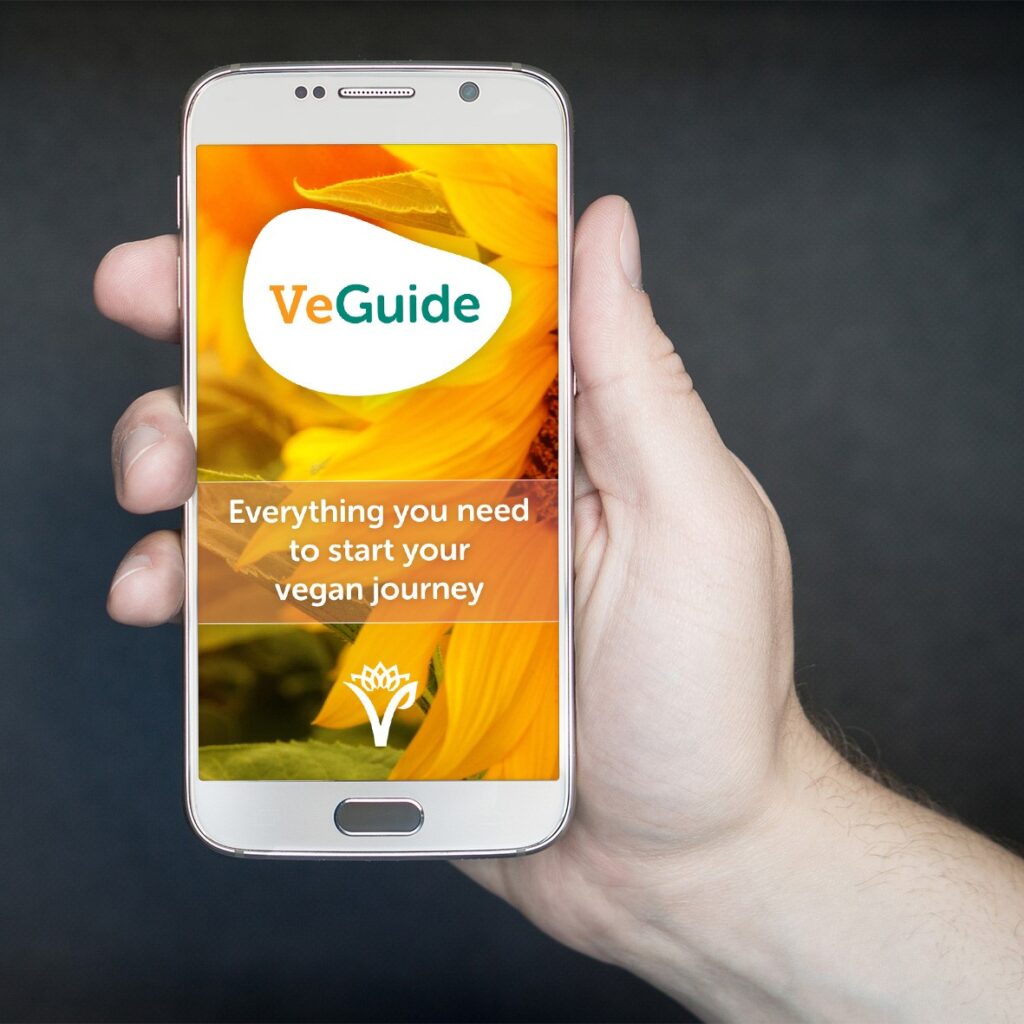
Launched in 2018, The Vegan Society’s VeGuide app is filled with recipes, motivation and advice to help you go vegan. If you think you’ll struggle to give up cheese, find vegan products, or grapple with whether this diet works for you, the charity says VeGuide can help you through all of that.
Over 30 days, the free-to-download app covers the basics with short daily videos, presented by influencers Mic the Vegan, Rae Likes Froot and Jay Brave. These “personal vegan guides” explore the most common stumbling blocks to going vegan, and provide tools to overcome them.
Vegan dating and social apps
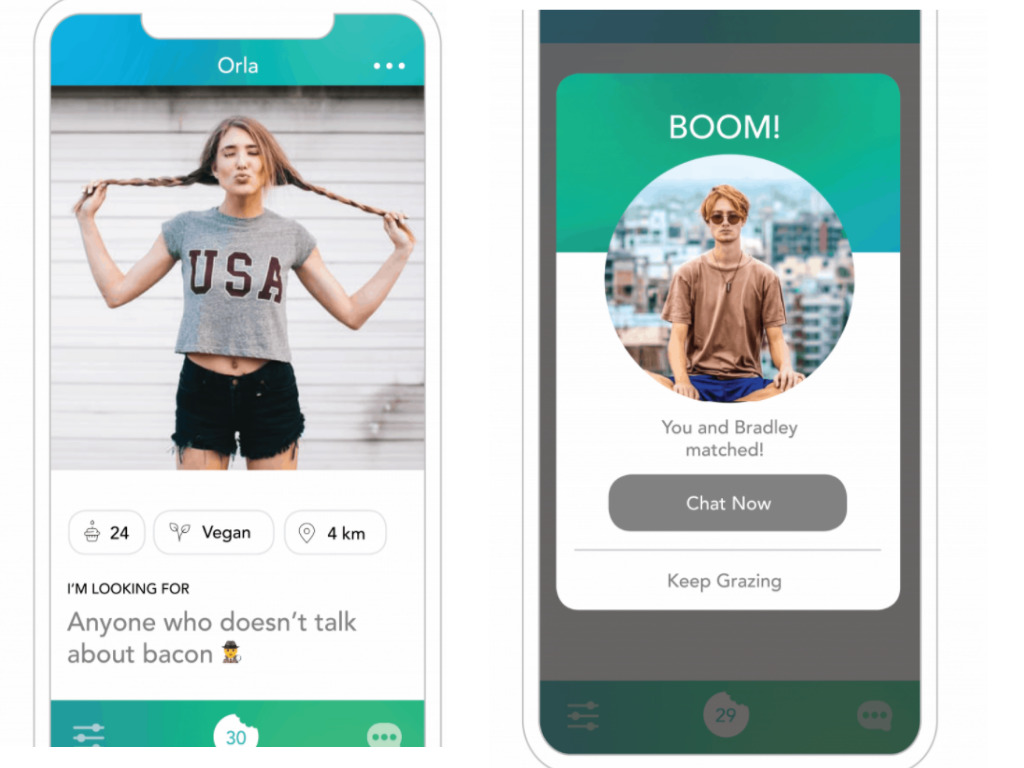
For many people, dating a fellow vegan can be much easier. While traditional dating apps like Bumble and Tinder can help you a little here, there’s no filter for dietary preferences (and it’s not necessary for people to display what diet they choose to follow). So platforms like Veggly, Vegpal and Grazer really help. These are exclusively vegan and vegetarian dating apps, which help you bypass that first step of having to find someone with like-minded eating habits (if you’re of that persuasion).
Grazer and Vegpal also have a friend-finding feature like Bumble, which is great if you’re looking to meet other vegans. You can help each other through your journeys, and discuss challenges as well as wins with somebody who can relate better. Similarly, Vegazone is a community-based social media platform for vegans and those looking to adopt a plant-based lifestyle.
IRL vegan communities
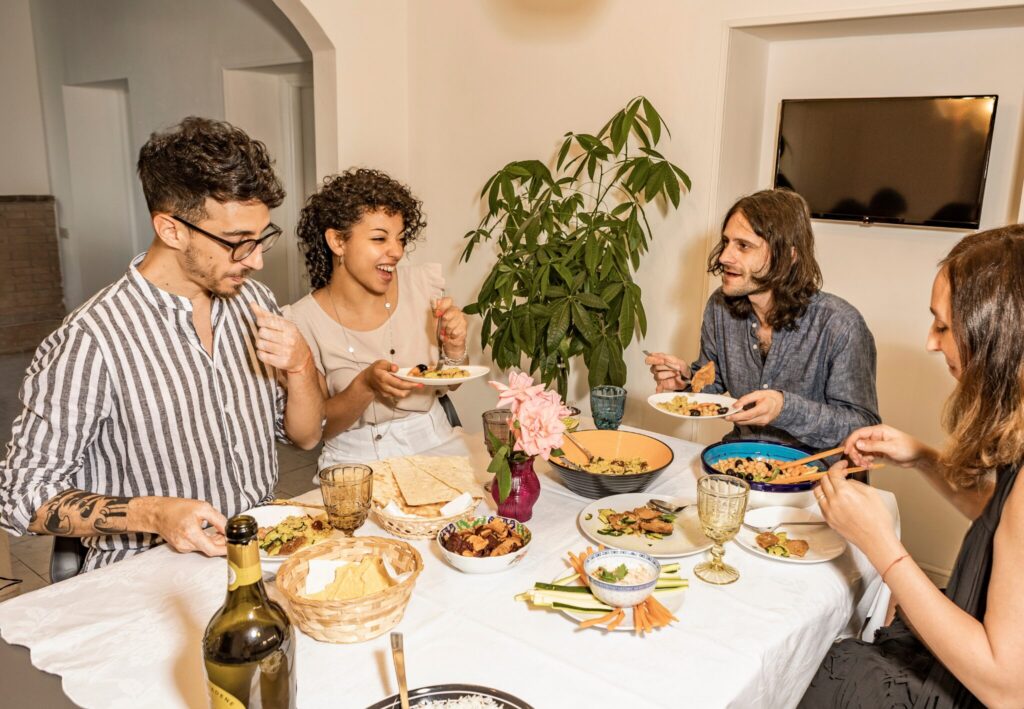
It’s not just your phone that will help you find other vegans – there are myriad in-person events and communities you can join to do so. Veganuary itself has an extensive list of communities in the UK, with Facebook or Meetup.com links to help you get started.
Additionally, the campaign recommends volunteering in animal sanctuaries or for environmental charities, alongside joining other activist groups and attending vegan events and markets. These meetups can be super helpful in finding people who can act as a support system, as well as make the transition more fun. For example, London Vegan Meetup, which has over 10,000 members and is one of the largest vegan groups in the world, is hosting board game nights as well as tennis/walking sessions during Veganuary.
Restaurant and product review apps
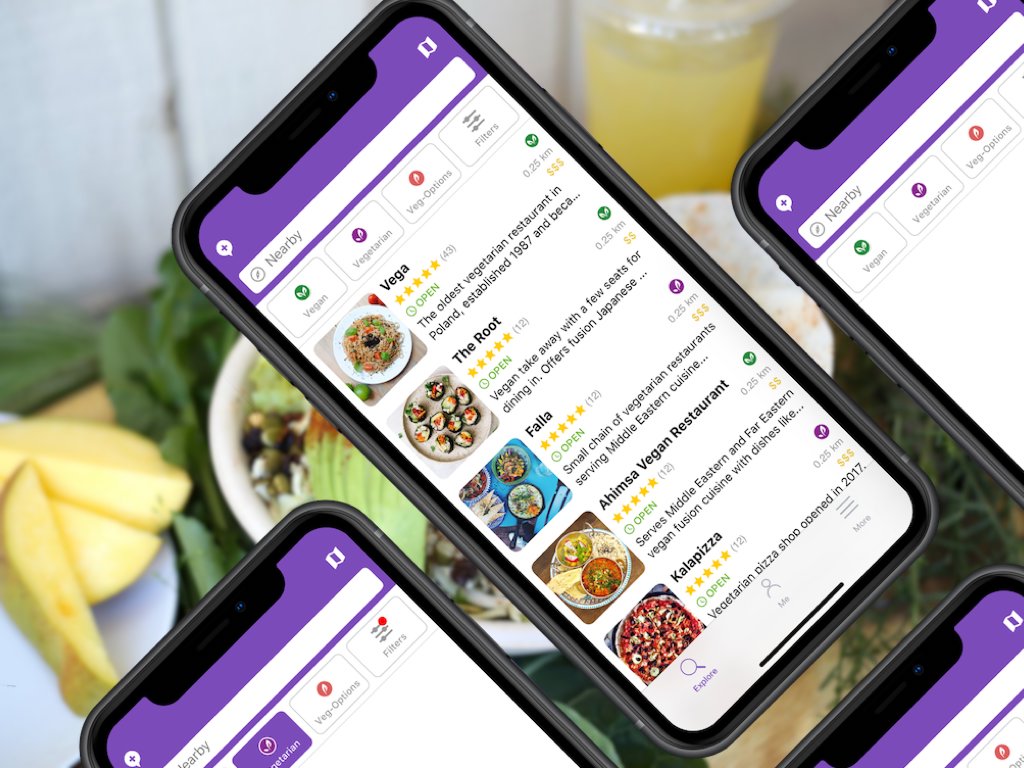
Two apps that have stood the test of time when it comes to veganism are HappyCow and abillion. The former, launched in 1999, is a treasure trove of vegan-friendly eateries in cities all over the world. With over 1.1 million members, the site lists more than 220,000 restaurants in 185 countries that cater to vegans – whether it’s a single dish on the menu or the whole place – with word-of-mouth-based user reviews and photographs. For many people, HappyCow serves as the sole food guide for their travels.
Similarly, abillion is a review and rating platform with over a million app downloads. It allows users to review plant-based and cruelty-free products, as well as recommend vegan-friendly restaurants, in 183 countries. Plus, the app donates between 10 cents to $1 for each review written – the user writing it is credited with the money, which they can choose to donate to one of over 70 charities. So far, Abillion claims to have donated over $2.8M so far.
Product scanners and checkers
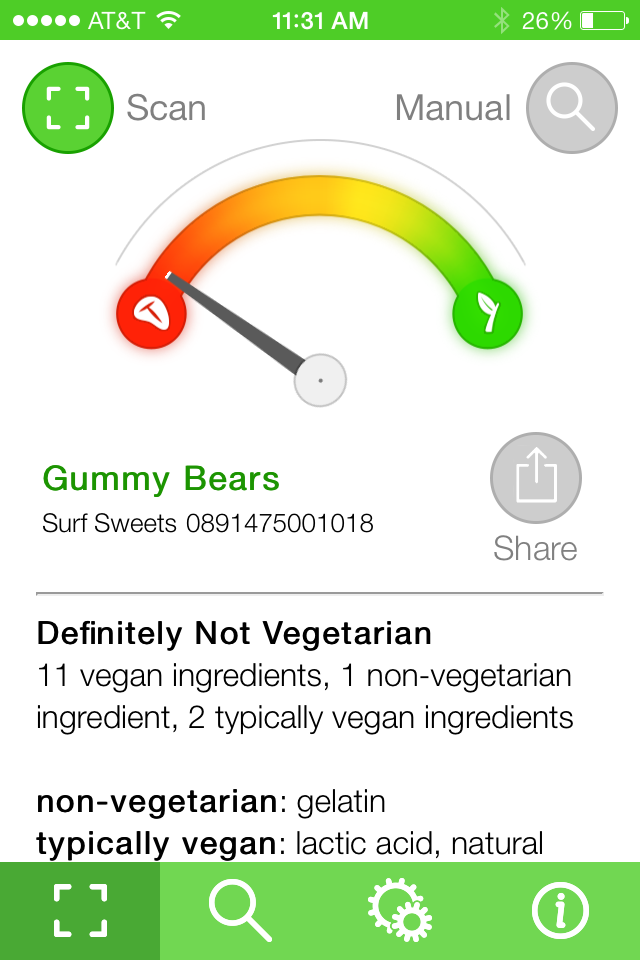
During their initial vegan phase, most people find themselves checking product labels much more often – many products that should be vegan can sometimes have ingredients like milk powder or honey (which isn’t listed as an allergen), making it hard to discern what is plant-based, and doubling grocery times.
But there are resources that can help you out here. Apps like Is It Vegan?, VeganScan, Cruelty Cutter and Bunny Free have massive directories of food and beauty products. All you need to do is scan the barcode or product label, and it will come up with a detailed list of ingredients or background information to tell you if the product is vegan and/or cruelty-free.
As a bonus, cult-favourite Instagram account Accidentally Vegan finds UK products that aren’t marketed as vegan, but just happen to be plant-based – for example, Oreos or the dark chocolate Grand Ferrero Rocher. This can apply to the same item in other countries too, but it’s always good to check. The account has now expanded to include new vegan launches too – which is particularly important during the product innovation dump that is Veganuary.
Recipe websites and cookbooks
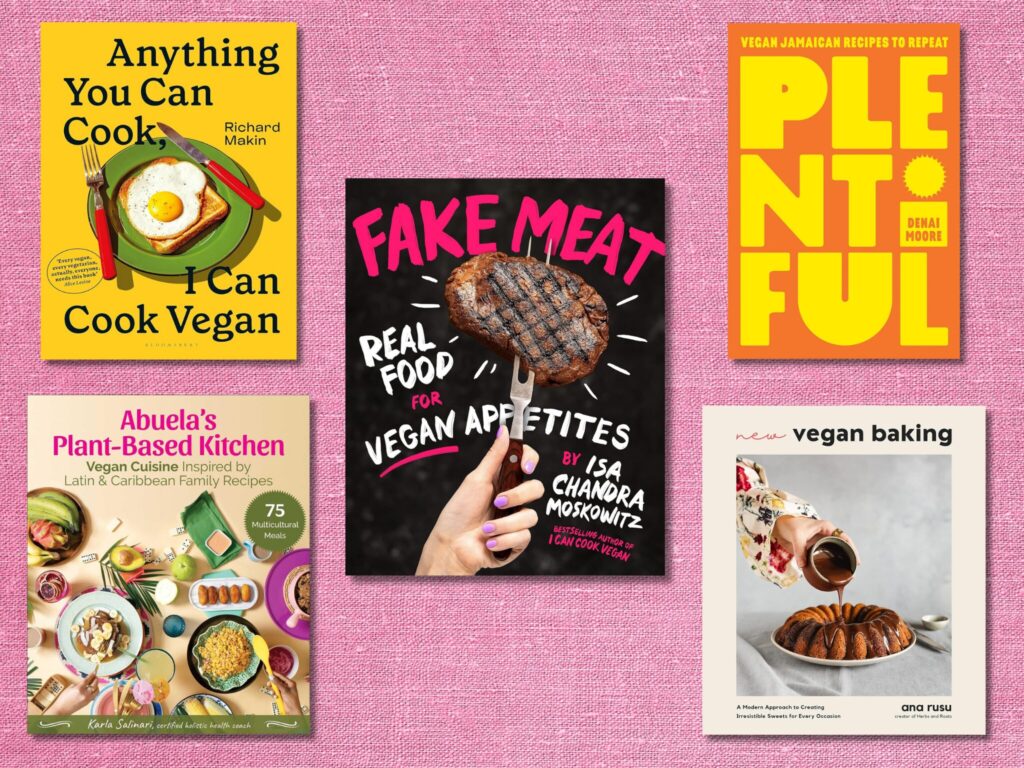
One thing you’ll notice when trying out veganism is that you’ll be cooking significantly more, even if you already spend a lot of time cooking. It really does bring out a new creative side in you, pushing you to experiment more in search of new flavours and textures.
There are countless vegan recipe blogs and cookbooks to try out, of course. Resources like America’s Test Kitchen (which also has two all-timer plant-based cookbooks), Serious Eats and Food52 have wonderful vegan recipes that stand out on their own, or serve as equally delicious replacements for meat and dairy.
But these can be a little involved. If you’re looking for easy vegan recipes without any flavour compromise, look to blogs like Gaz Oakley’s Avant Garde Vegan, Pick Up Limes, Rainbow Plant Life (all three have excellent YouTube channels too) and Minimalist Baker (which isn’t fully vegan anymore, but still has mostly plant-forward recipes). And in terms of cookbooks, we highly recommend America’s Test Kitchen, BOSH!, and the works of Isa Chandra Moskowitz and Miyoko Schinner. If you’re looking, we have a list of the best new vegan cookbooks released this year.
Veganuary’s support materials
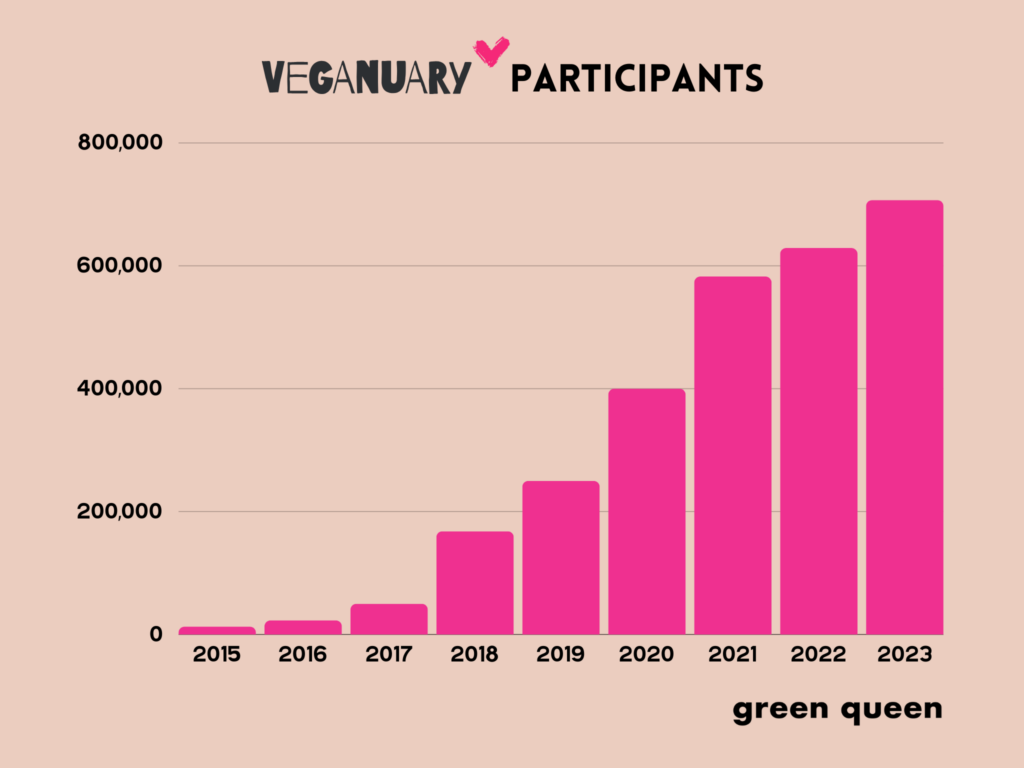
Veganuary has its own list of support materials that are available to you after signing up. These differ from country to country – the campaign has offices in eight nations – but range from starter kits and nutritional advice to daily coaching emails and a digital celebrity cookbook.
You can cook recipes provided by actors Evanna Lynch, Joanna Lumley, Mayim Bialik and John Bishop, athletes like Serena Williams and Chris Smalling, and more. Plus, the campaign has an expansive list of recipes and eating guides to help you through January, alongside a podcast, documentary and other suggestions like workplace challenges and corporate collaborations.
These are just a few of the tons of resources out there to help you have a successful Veganuary 2024. But the most important thing is to remember to be kind to yourself: veganism isn’t about absolutes and ‘failing’ shouldn’t be a concept here – try your best and back yourself.

